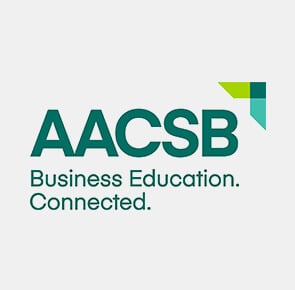Compare Popular Online Business Education Programs
What Does a Career in Business Education Entail?
Business education is an important part of the national economy. It provides the skilled and highly educated employees that fill the staff and leadership roles essential to the next generation of business teaching in high school and state university or other secondary school education programs. Business education also provides the educational cadre that prepares the present and the emerging generation of business leaders.
Business education degrees will provide licensure to teach and opportunities to research and administer education systems. But a business education program, such as a Bachelor of Science in Business Education, goes far beyond college classrooms. It is an essential part of the growth of human assets in the modern corporate model. Change is driven by globalization, and other results of technology and technological innovation also create a continuous need to add knowledge and education to key personnel, technical staff, and a large array of essential organizational employees. The expansion of business to global scales has added educational requirements that include cultural studies, languages, and international law. A well-organized business education program can teach you all of this and prepare you to teach business education courses that enlighten others whether you choose to work at a state university, college, or high school. Aditionally, because the majority of the learning need not be hands-on, there are plenty of opportunities and options for earning an online degree in business education. Except for student teaching requirements, you should be able to find many of your required courses through an online learning platform, allowing you to attend a school from far away or speed up your education and graduate early.
How to Become a Business Education Teacher
- Identify the business education field as the professional goal
- Build some experience either in business, or through classes, in the business/education field
- Research accredited schools that offer the business education program or major
- Apply for admission to one or more schools
- Apply for financial aid and scholarships
Typical Business Education Degree Requirements
 An online Associate degree in Business Education is a two-year degree that most students complete in three years or less. The degree typically consists of 60 to 65 credit hours of coursework divided between business education, teaching, and general education. Students can get this degree from a community college a four-year college or university, or from an online school, college, or university.
An online Associate degree in Business Education is a two-year degree that most students complete in three years or less. The degree typically consists of 60 to 65 credit hours of coursework divided between business education, teaching, and general education. Students can get this degree from a community college a four-year college or university, or from an online school, college, or university.
Find Your Online Business Education Program
A Bachelor’s of Science in Business Education program is a four-year degree that is the essential degree for opening a broad range of opportunities in the field of business education. The degree typically requires 120 to 125 semester hours of coursework. In the teaching occupations, there are usually requirements for student teaching or other supervised practical experience.
The Master’s Degree in Business Education is the level of education needed to qualify as an expert, participate in college-level instruction, and undertake leadership roles. The degree requires one or two years of study and many education programs require a dissertation or capstone project. A bachelor of science in business or a degree in a related field or other education programs is a prerequisite educational qualification.
Typical Business Education Certifications Needed
States require teachers in public schools to have a state-approved certification. The certification requires a bachelor’s from an accredited institution or attendance and graduation from a state-approved teacher preparation, course of study. Teachers must also pass a state-sponsored exam to test competence. The typical certification requirements are a bachelor’s in education, a period of student teaching, a criminal background check, and a passing score on the state teacher examination.
The teaching exams include a general knowledge testing and a general teaching competence assessment. In many states, the teacher must request specific certification in a type of teaching such as special education, Birth through age three, middle grades, secondary, or other classifications.
Academic Standards for a Business Education Degree
The business education curriculum must prepare knowledgeable graduates with a broad understanding of business. The below-listed subjects and course options are elements of a consensus on national standards for business education in the US.
- Accounting, Business Law, Communications
- Economics, Personal Finance Economics, and Personal Finance
- Entrepreneurship
- Information Technology
- International Business, Management, and Marketing
Exam/Experience Needed for a Business Education Degree
The prerequisites for taking a four-year degree in education or a business education program begin with completion of a high school level education. This can be by diploma or GED. Most schools use some type of admission criteria and use standardized test scores to help rate applicants. The standard tests include the undergraduate SAT, ACT, and the GRE for graduate study programs.
The schools typically establish personal fitness for the program by clearing the academic record for compliance with codes of conduct, school rules, and regulations.
Business education is a high demand major at a large number of colleges and universities. The student motivations for entering the business professions are not predictable. While many if not most students use the major to enhance salary, some students see business education as a platform to effect social change and bring a greater sense of fair play and economic justice.
Find Online Business Education Schools
Associate Degree in Business Education Online
The associate degree is a stepping stone to a four-year bachelor’s degree needed to teach in all state-funded public-schools. The available majors may be business studies or a focus in teaching with a business concentration.
Example Coursework for an Associate Degree in Business Education:
- Introduction to Management
- Introduction to Teaching
- Principles of Business Organization
- Accounting
- Marketing
Bachelor’s Degree in Business Education Online
Bachelor’s students in Business Education must complete core coursework for business and education. Professional education requirements include at least one semester of student teaching.
Example Coursework for a Bachelor’s Degree in Business Education:
- Business Law
- Management
- Marketing
- Entrepreneurship
- International Business
- Communications
- Principles of Teaching and Learning
Concentrations for Bachelor’s Degree in Business Education:
International Trade, Instructional Technology, Entrepreneurship
Master’s Degree in Business Education Online
Business teacher preparation requires a structure for educating teachers during and after their college enrollment. The master’s degree in business education is the entry-level degree for teaching in a collegiate institution or business school.
Example Coursework for a Master’s Degree in Business Education:
- Basic Business and Marketing Instruction
- Computer Programming
- Business Information Systems
- Educational Research
Concentrations for Master's Degree in Business Education:
Education Technology and Business Communication
| Online | Public, In-State | Public, Out-of-State | Private | |
|---|---|---|---|---|
| Associate | $4,500 | $28,000 | $28,000 | $48,000 |
| Bachelor’s | $12,000 | $80,000 | $160,000 | $195,000 |
| Master’s | $7,500 | $37,500 | $37,500 | $85,000 |
Earning Potential for Business Education Degree Fields and Occupations
Education Level & Average Median Compensation
At every level, there is a strong connection between salary and education. The investment in education repays itself with higher annual and lifetime earnings. There is a similar effect from work experience. There is a consistent reflection of experience in higher salaries at the mid-career and late career levels. The below-listed figures from LinkedIn demonstrate the connection of income and education.
Illustration - Education Level and Annual Median Salary
- Secondary Education - $51,500
- Associate’s Degree - $57,100
- Bachelor’s Degree - $79,800
- Master’s Degree - $87,700
- Research Doctorate - $94,100
- Doctor of Law - $107,000
- MBA - $118,300
- Doctor of Medicine - $161,200
Business Education Fields of Study Median Salaries
Business Education Fields of Study
- Business is the overall field of economic and social activity that underpins the national and global economy.
- Management is the study of business organizations structures and behavior.
- Marketing is the field of concern to the explanation or introduction of goods and services to the customer base. In the global economy, marketing has a technological component.
- Accounting involves the financial demands in the traditional business discipline of accounting theory and practice.
- International Business is the study of business in the global economy.
- Teacher K-12 is the field of study concerned with elementary and high school teaching.
- Post-secondary Education concerns teaching in college and vocational education settings.
- Graduate education involves the pursuit of advanced degrees and certifications in business education.
Field of Study Average Salary by Degree Level
| Field of Study | Associate’s Salary | Bachelor’s Salary | Master’s Salary |
|---|---|---|---|
| Business | $38,000 | $78,000 | $98,000 |
| Management | $50,000 | $60,000 | $75,000 |
| Marketing | $45,500 | $63,485 | $92,000 |
| Accounting | $42,470 | $6I,993 | $68,500 |
| International Business | $48,900 | $56.000 | $80,000 |
| Teacher K-12 | $31,000 | $54,000 | $62,000 |
| Post-secondary Education | $46,000 | $54,000 | $72,000 |
| Graduate Education | n/a | n/a | $72,000 |
Salary by Occupation
Business education covers a wide range of occupations. Salary can vary depending on demand and economic conditions. These occupations and groups have positive short and long-term prospects for students.
Business Education Occupations:
IT Consultants advise on information systems, security, and educate professional and management staff.
Employee Trainers are adjuncts to Human Resources to improve business education for employees.
Marketing Instructors provide specialized education in business, schools, and various teaching settings.
International Business Consultants provide advice, information, and education in business and academic settings.
College Educators deliver business education in school, college, and university settings.
Professors of college level and graduate education provide mentoring and instruction to graduate students.
Annual Salary Range by Occupation
| Occupations | Entry Level | Mid-Career | Late Career |
|---|---|---|---|
| Teacher | $44,000 | $48,200 | $61,600 |
| Trainer (HR) | $41,600 | $54,900 | $60,300 |
| Assistant Professor | $68,200 | $69,400 | $70,200 |
| Professor | $60,100 | $69,600 | $99,900 |
| Consultant | - | - | - |
| Marketing Consultant | $41,500 | $71,400 | $81,100 |
| IT consultant | $62,200 | $85,400 | $111,900 |
Important Questions to Ask (FAQ)
How long does it take to earn a Business Education bachelor's degree online?
 Students can earn a bachelor’s degree in four years or less with full-time attendance. Some schools offer a bachelor’s degree earned entirely online. In the case of business education, those that seek teaching credentials must perform student teaching and supervised practice at an affiliated institution or on-campus. Because many students maintain jobs or businesses while studying for the online bachelor’s degree, they will likely take longer than four years to complete the curriculum.
Students can earn a bachelor’s degree in four years or less with full-time attendance. Some schools offer a bachelor’s degree earned entirely online. In the case of business education, those that seek teaching credentials must perform student teaching and supervised practice at an affiliated institution or on-campus. Because many students maintain jobs or businesses while studying for the online bachelor’s degree, they will likely take longer than four years to complete the curriculum.
The trend across all degrees and types of institutions is towards a five to six-year range for a bachelor’s degree. If you attend part-time it can take even longer, but students that attend part-time online can accelerate their education programs with summer sessions and adding extra education courses when their schedules permit.
Search Programs Offering Business Education Majors
How much does an online Business Education bachelor’s degree cost?
The costs of a four-year degree can vary depending on whether the school is public or private. If private, then the estimated range varies with in-state versus out-of-state rates. A general guideline and estimated set of ranges are as follows.
- Public school’s in-state four-year total is about $88,000
- Public school’s out of state four-year total is about $140,000
- Private school’s four-year total is about $190,000
A four-year degree from a brick-and-mortar school is often costlier than a degree from an online school. A recent estimate for the cost of a four-year bachelor's from an online school was set in the range of $45,000.
Does the school have the major(s) you’re considering?
Many schools offer business courses, and they offer education coursework. Students that want to specialize in business education must be sure that the school actually offers the specialization for a major in business education. A major is a field in which a student focus develops into a specialization. A minor is a second field that will have fewer courses than a full-blown major. In most schools, the student must commit to a major and this choice determines the requirements for graduation. The school assigns special faculty to the major coursework so that the student can get the maximum benefit of specialization.
Business education requires a thorough background in the basics of business with room for concentrations in one or more areas. The major requires training in teaching and communications. Business educators must be able to effectively equip students to enter a modern and technology-driven business environment.
If you’re uncertain whether or not you should major in business or education, you should contact your states teacher licensing board and ask if they have any specific requirements. You may be able to major education, with a minor in business. Or you might be able to major in business and then complete a teacher training program. Or, you might end up having to double major in business and education, finishing with two degrees. It all depends on the specifics of what your state requires.
How many students graduate “on time,” in four years?
Student graduation rates have an important impact on the learning experience. The costs of an education degree depends primarily on annual tuition, fees, and living costs. When students extend beyond the planned or on-time graduation dates, the costs are significant. Each additional year of education at a four-year institution adds about 25% to the costs of a four-year degree.
Public schools have a 35% on-time graduation rate with about 65% completion at the six-year point. A clear majority graduate within 150% of the on-time rate. Private schools enjoy a 53% on-time graduation rate. That figure rises to 68% at the six-year mark.
What kind of accreditation does the program hold? How is it regarded in the field?
Program accreditation is a powerful endorsement of the quality of education in any program. Business education can be housed within an Education Department or a Business department. Both business programs and education programs have highly respected programmatic accreditation agencies. These Department of Education-authorized organizations provide an assurance that the specialized business and education coursework meet the high standards for quality education.
For an Education major, you should look for accreditation from the Council for the Accreditation of Teach Preparation (CAEP). For business majors, you should look for program accreditation from The Accreditation Council for Collegiate Business Schools (ACCBS).
Software/Technology/Skills Needed
As future educators, business education students should focus on word processing, online research, library research, and electronic presentation skills. They should know how to use modern methods for presentation and distribution of materials, and instructional media. Educators should be at ease with working on the internet.
Communications and listening skills are also essential to effective teaching. Students should be aware of trends in educational practices and the use of technology as it expands into traditional fields. For example, there may be software today to handle essential tasks like student assessments. And there are new varieties of applications for both traditional and mobile computing that exist purely to assist teachers in reaching, interacting with, and monitoring their students. These are not requirements, only options.
Business Education Scholarships
-
Dairy Management, Inc. Scholarship Program
Amount: $3,500 (11 Awards)
Deadline: April 22
Students must be enrolled as sophomores, juniors, or seniors with a business or other eligible major. The association makes one additional memorial award of $3,500. Eligible majors include agricultural education, marketing, and business.
-
Government Finance Officers Association
Amount: $5,000-$15,000
Deadline: January 18
Eligible students include US residents and citizens interested in a career in public finance. The criteria include experience and demonstrated commitment to government finance and improving best practices.
-
NSA Scholarship Foundation
Amount: up to $30,000 (25 Awards)
Deadline: varies
The National Society of Accountants Foundation is a resource for accounting and business education. The Foundation awards scholarships to undergraduates enrolled in a business-related degree program. The foundation makes awards based on demonstrated need, outstanding academic achievement, and evidence of leadership capacity.
Professional Business Education Organizations
- NBEA
- AACSB
- NEA
- AFT
- NABTE

NBEA
National Business Education Association
The National Business Education Association (NBEA) is a national membership organization that serves groups and individuals engaged in disseminating information about business. The NBEA represents educators, administrators, researchers, and other participating groups. It forms a bridge between the private and public sectors on subjects concerning the role of business education. The NBEA promotes the recognition of business educators and their valuable competencies. Business education works for everyone and business education competencies play an important role for everyone in today’s fast-changing business and work environments. Students can take advantage of the educational resources and up to date professional information. The NBEA conferences and conventions are excellent venues and opportunities for networking.

AACSB
The Association for the Advancement of Colleges of Business Education
The Association for the Advancement of Colleges of Business Education is the leading accreditation agency for business education. This international organization provides a widely accepted symbol of quality business education. Membership in this organization can promote professional development including participation in research and accreditation task force studies. Students can use AACSB resources when selecting business schools and programs. During and after graduation, students can benefit from information and educational resources at AACSB.

NEA
National Education Association
National Education Association has more than 3 million members and chapters in every state. The NEA has a dynamic communications platform using print and digital media to inform members and develop cohesive action plans. Educators will find helpful educational resources for teacher development and teaching. NEA has a broader reach than business education as it embraces all forms and levels of public education. Students in business education will benefit from exposure to the issues confronting educators in general and the educational resources at the NEA.

AFT
American Federation of Teachers
This advocacy organization deals with public policy on education, and it includes but is not limited to business education at all levels of instruction. AFT promotes the teaching profession and greater recognition and rewards for teachers at all levels and in all disciplines. Students that wish to promote active engagement in public policy will benefit from membership and participation in the AFT.

NABTE
The National Association for Business Teacher Education
This organization is the institutional division of the NBEA. The NABTE promotes business teacher education. NABTE provides industry leadership and member services. The members include individuals and organizations engaged in teaching business education at various levels of education and business. NABTE restricts membership to institutions having curriculums that have the approval of their state education agency. The NABTE focuses on improving undergraduate and graduate business teaching programs and developing high standards for teacher certification. Students can benefit from information and resources at NABTE for their leadership in certification and college education for business teachers and business education professionals.
Choosing an Accredited College
Accreditation adds value to a degree and the credit hours earned at a school, college, or university. Employers and other educational institutions accept coursework and degrees from accredited schools. Accreditation makes financing easier for nearly everyone and possible for those that rely on federal student loans. Schools must have accreditation from a respected agency before they can participate in the US federal student loan program.
Accreditation can cover an entire school; regional or national accreditation. Accreditation can also cover the Education or business department in which the business education program sits. The focused accreditation is called program accreditation. The ideal combination for students is to select an accredited college or university that also has an accredited Business or Education program.
Accreditation of either the school or the program will suffice to get federal funding and create wide acceptance of the degree and credits. Students must make sure that the accreditation agency is on the list of approved accreditation agencies. For example, the AACSB is widely recognized for business programs. The US Department of Education authorized the AACSB to perform program accreditation in Business departments, schools, and programs
Online vs. On-Campus vs. Hybrid
Students can decide the type of learning experience that works best for them. They can choose to attend on-campus, online, or in a mix of both on-campus and online coursework. Online attendance is ideal for students that have jobs, businesses, or other concerns that prevent leaving to attend school. Online education is flexible and convenient. Students do not attend class on a schedule with other students. Online learning is asynchronous which means students do not need to gather at a specific place and time to participate. Students can access online content as they wish and from any location with an internet connection.
On-campus learning is synchronous, and students must go to a place at a particular time and participate with a group of students. On-campus attendance may require relocation and the cost of living away from home includes room and board, books, supplies, food, and transportation expenses. There are many advantages to on-campus education including the social benefits of living in a community of students and scholars. The hybrid pattern can use on-campus and online courses to the student’s best advantage. The hybrid is ideal for students that prefer some mix on campus and remote study
Frequently Asked Questions
Does business education only exist at the post-secondary level?
The first answer to this is no. However, there are few high schools (and a very few middle schools) across the country that hire business teachers into teaching positions. You might find yourself teaching business math to high schoolers, but your best option for positions will be to earn a master’s degree and work in a community college or university. It may be hard to get into some four-year institutions without a master’s degree or extensive experience, but it is possible.
Is an online degree an option?
There are online degrees for practically everything these days. Mathematics and business education are easy to complete through an online format, though your education classes might be bit trickier. No matter how much of your degree you finish online, you’ll still need to complete an in-person student teaching experience before you can complete an education degree or gain licensure.
Does the College Have Post-Graduate Job Placement Help & Assistance?
University HQ recommends an evaluation of the placement and job assistance program in the selection process. Students should assess the graduation rate, the rate of employment of business education grads, and the resources committed to the placement program. The school of attendance is in an ideal position to promote the early phase of its graduates’ careers.
The school can operate a program that involves local and regional employers, the vast network of alumni, corporate partners, and sponsors. When turned to the student’s advantage, the school network and recruiting apparatus can produce referrals, interviews, and substantial hiring opportunities for its graduates and upper-class students.
Why You Need to Consider the Overall National Rankings of the College and the Effects on Your Career or Salary
The best school choices for any student are those that meet their needs and match their preferred style of learning. Rankings present a quick overview and a way of examining schools other attributes. Rankings often include factors that are important to employers such as hiring success rates of recent grads. Rankings can make a difference in the ways employers and other educational institutions view your education. These independent ratings can work for graduates, particularly when just starting a career. Graduates from highly ranked schools may get a wider range of high paying job opportunities than grads from lower-rated schools.
The ranking has a place, and it is a good tool to consider when selecting a school. However, ratings are not more important than choosing a school that complements your objectives. When all things seem nearly equal, then students can give weight to rankings, and it is a powerful factor in an effective selection process.
